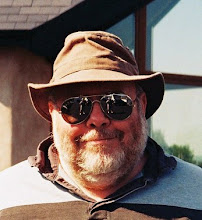My Great-uncle Billy went to Spain in 1936 to fight Franco. Many did. Franco led a military coup which overthrew the democratically-elected governmemt of Spain. In the civil war which followed Billy Davies was killed at Brunete in the siege of Madrid. Franco's side won and Spain remained a military dictatorship until Franco's death in 1975.
Billy joined the communist party while he was a coal miner in South Wales. Many did, as the communist party was busy aligning itself with the socalist tendencies of the workers of the time. These workers had concerns about the impermanent nature of their work, which was available for only a few days at a time and at few days notice. They were also concerned with the landlord of the time who had no trouble exploiting their tenants.
Which led me to contemplate the history of the communist party and the nature of Marxism. I'm no expert and make make no claims of rigour in my researches but casual reading of the subject leads me to frame some observations.
It's the nature of the communist party to hijack any theme of protest. Thus the pro-democracy and anti-fascist volunteers who went to Spain to fight Franco found themselves to be aligned with the communist party.
Classical Marxist-Leninist philosophy states that Communism will have been achieved when the State "withers away". We find in the modern Marxist-Leninist state that the central administration does not wither away but instead makes every effort to promote, preserve and strengthen itself starting with the establishment of a singe-party state and a supreme central soviet. Associated with the apparatus of state is a single state-run bank and the total control of the media. Probably the most important one that, control the sources of information and you can control what people think. The USSR fell because its citizens got news that life outside was better than life inside. They wanted Levis and MacDonalds and the chance to earn enough to buy a Porsche. They voted for the first leader that promised them they could have all that.
I understood Karl Marx to be writing only about the transition of the Russian society from feudal agrarian society to an industrial society. The extension of his theory to other countries and other economies may have been in error. He observed in Britain the rise in power of a skilled and literate workforce which did not rely on the ownership of land for its political power.
From this he predicted that the workers would eventually control if not own the means of production. The two problems I have with this is that the ownership of the means of production meant the ownership of capital. In the economics of the time this meant that property would be converted to capital and the workers would somehow come to own and administer it.
In Russia, China and Cuba (Three Marxist-Leninist states of which we are all aware) this came about through bloody revolution. In Britain it came about through property taxes and inheritance taxes which transferred some or even most of the property into the hands of the state. These were socialist policies brought about by the Labour party which claimed to represent the power of the workers and promote a socialist agaenda. The Labour party of today no longer represents the working man nor socialism. They have dropped clause 4 and dropped the political levy. They no longer regard the unions as their owners and instead fawn and grovel to the markets and makers of public opinion.
The mixed economy of Britain, part state-owned and part privately-owned, may be viewed as an economy in transition towards a Marxist state but only if one is determined to justify or substantiate Marxism. In my opinion the British economy is on its way to something else and may well end up as a commercial oligopoly where the ultimate economic control rests with world-spanning multinational corporations who are answerable to their boards and shareholders. This will spell the end of nationalism since the notion of statehood will become increasingly irrelevant. The demise of different political parties with different political agendas is already imminent and obvious. All that seperates the agendas of the three parties is some inconsequential disagreements over the last few percent raised by taxation and similar disagreements about how it should be spent.
Links: A close friend of Billy's was Alun Menai Williams who is mentioned here:
http://news.bbc.co.uk/1/hi/wales/5179738.stm
and here:
http://www.guardian.co.uk/g2/story/0,,395365,00.html
In the first of these links there's a picture of Billy standing next to Alun who is sitting with a kitten on his lap. What strkes me first is Alun's filmstar good looks. Then Billy's oversize and crumpled battledress and the rifle he carries. The rifle butt is resting on the ground and the tip of the rifle barrel reaches nearly to Billy's shoulder. Billy is a child of the depression years and the South Wales coalfield. He is small, wears glasses and fired with a determination to fight the forces who are oppresssing the democratic rights of his Spanish brothers.
When we found the Guardian article my father and I looked up Alun Menai Williams phone number in Barry. We spoke. Alun was delighted to hear from relatives of his beloved friend and comrade in arms. He recalled the boyhood friendship and was able to put Dad right on some of the details of his antecedents. One uncle or great uncle had died in a swimming accident. His wife later died of a fever and their daughter had been brought up by another uncle and aunt. Alun's own story is a remarkable tale of everyday heroism, and romance and startling survival. I recommend you to research it yourself.
Subscribe to:
Post Comments (Atom)

No comments:
Post a Comment